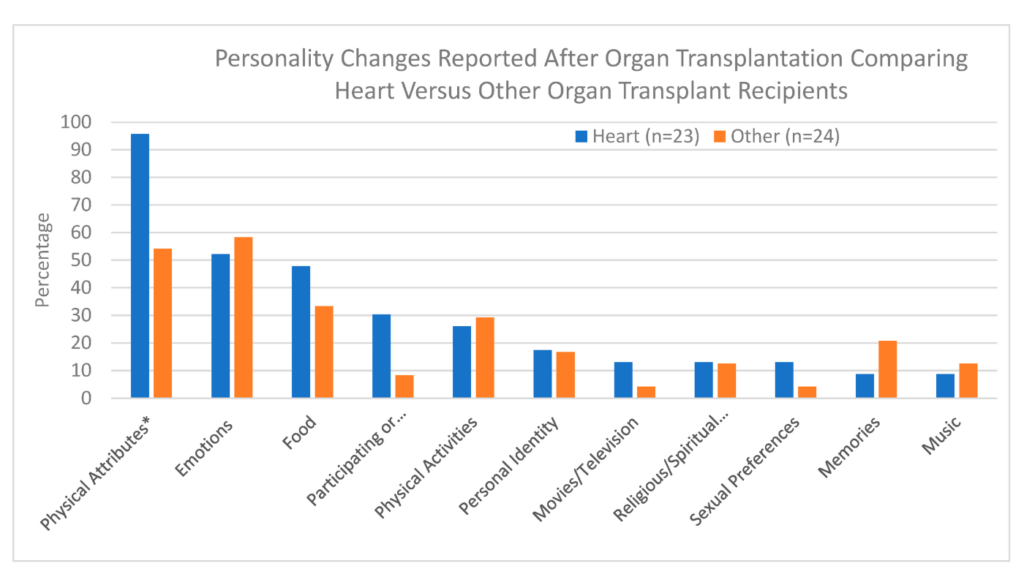New Organs, New You?
Organ transplantation may have deeper effects on recipients than previously thought, with 96% of heart recipients reporting a change in physical attributes post-surgery.

Read Time: 2 minutes
Published:
In the high-stakes world of organ transplantation, the main concern is usually whether the recipient’s body will accept or reject their new organ. However, what happens to a recipient’s sense of self after a transplant? Can receiving a new organ lead to changes in personality, emotions, or preferences?
Brain Carter and his team surveyed forty-seven organ recipients in the U.S., including twenty-three heart recipients and twenty-four recipients of other organs, such as lungs, livers, or kidneys. Participants completed questionnaires and interviews about changes in their personality, preferences, emotions, or behaviors post-transplant. The goal was to explore how common these changes are and if they differ based on the transplanted organ.

As shown in the graph above, nearly 96% of heart recipients reported changes in physical attributes post-surgery compared to 54% of other organ recipients. These changes included shifts in energy levels, physical capabilities, and how recipients perceived their physical selves. Majorities in both groups noted alterations in temperament and emotions.
While the sample size limits definitive conclusions, heart recipients more frequently reported changes in food and sports preferences, which could be related to improved cardiovascular function. Interestingly, non-heart organ recipients were more likely to report memory changes, with some describing improved recall of past events and others noting changes in the types of memories that felt most vivid or important to them.
What’s driving these transformations? The researchers propose several hypotheses, from the psychological impact of a second chance at life to the complex interplay between organ function and overall physiology. The higher change rates in heart recipients raise questions about how cardiac function improvement influences cognition and behavior. However, the authors caution that improved overall health and increased physical strength could also explain many of the observed changes.
Organ transplantation may have broader effects on recipients than previously recognized. The researchers call for larger, longitudinal studies and increased study of the potential mechanisms of this transformative surgical experience.



